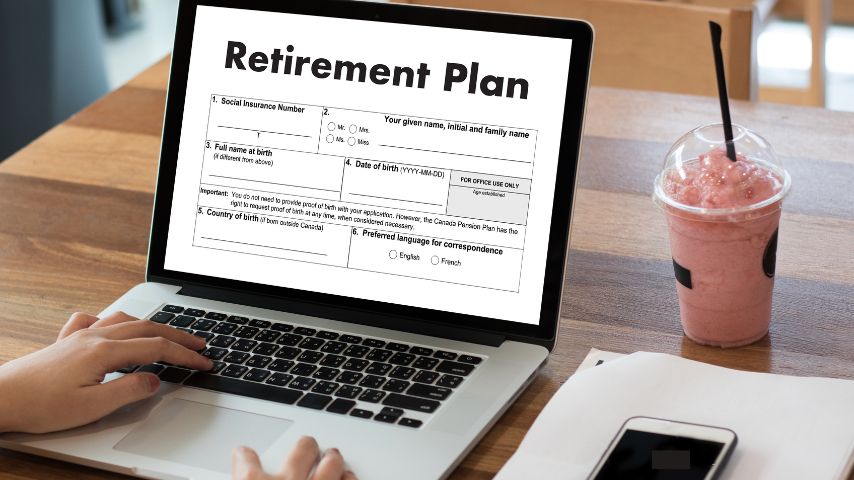No matter where you are in your legal career today, you should be ready with a lawyer’s retirement plan. Having a solid retirement plan will save your future and can make a retired attorney’s journey smooth. The retirement process can vary from place to place. New York lawyers can have a different process from California lawyers.
Having a plan in place will make your transition easier. Let’s explore more about the lawyer retirement plans. We have mentioned an easy 10-step retirement plan for lawyers that can make your retirement smoother.
What is the Average Retirement Age for Lawyers?
According to the U.S. Census Bureau, the retirement age for lawyers is between 63 to 65, where 63 is for women & 65 for men. But according to ABA, nearly 14% of lawyers are working past the age of 65. We have mentioned the average age, but ultimately, the retirement decision depends on lawyers. If a law firm or organization has a fixed retirement age, then lawyers have to retire according to that else they can decide when they want to retire. However, mandatory retirement is a very controversial topic in the legal industry.
10 Step Retirement Planning for Lawyers
Here’s a realistic ten step lawyer retirement plan that can be helpful for your retirement planning:

1. Start by Reviewing Active Cases & Pending Court Dates
Before deciding on your retirement, you will have to consider the number of open cases and pending court dates. It is important to close all your court cases before retiring from your practice. If you are not able to close all your cases for any reason, consider talking with your clients and giving the case to another attorney.
Obtain client permission for withdrawing from the case and have clear communication with clients about the procedure. If a client decides to transfer the case file, a Substitution of Attorney in court.
2. Let Your Clients Know About Retirement

According to ABA rule number 1.4, “lawyers have an obligation to communicate relevant information to clients.” So, while creating an attorney retirement plan, make sure to know when you will be announcing your retirement plan to your clients. Let them know what will happen to their cases, personal information, and documents. Additionally, ensure documentation of all correspondence.
3. Have a Document Storing Plan in Place
Even if you are retiring, you are liable to store your clients’ documents. Retirement for lawyers includes having an understanding of applicable regulations for storing client information. Be ready with the document storage plan. Also, thoroughly go through your documents and see if you are supposed to return any documents to your clients. These documents can include any original documents or other property belonging to them.
4. Finalize Business Affairs
One of the most important questions that you will have to answer is what will happen to your practice or law firm after you retire? So you can either sell your legal practice or you can simply transfer it to a successor. But you don’t want to do both, close it all together. It is important to consider these options for retirement plans. Finalizing the future of your legal practice is important for a lawyer’s retirement plan.
5. Submit Your Notice
Now is the time to submit your notice of retirement. This will include updating your status in the Attorney Information System or AIS. If you are retiring permanently, update your status to “retired.” If you plan to start practice again in the future, change it to “inactive.”
6. Know About Lawyer Retirement Benefits
There are a lot of retirement benefits available for lawyers. Make sure you are familiarizing yourself with such benefits.
Here are some standard partner retirement benefits according to the New York Bar Association:
Retirement income: It is the monetary benefit that most retired lawyers receive. They usually get this on a monthly basis. Retirement income can either be received from a law firm’s revenue or a previously funded source
Return of capital: This sum is paid to the lawyers within one year of retirement.
Accounts receivable/work in progress (AR/WIP) at the time of retirement: This amount is paid over a period of several years, and it comes from the firm’s revenue.
Access to office space and an administrative assistant: In some cases, lawyers may have access to office space, a legal assistant, and even participation in meetings.
8. Plan Your Retirement Budget
After you get a clear picture of your finances, it is time to plan your retirement budget. Retired lawyers need to do advance planning for their future finances according to their estimated future expenses. As a retired lawyer, your expenses will be different. Determine what lifestyle you are striving for, keeping your finances in mind. Create a budget around factors such as housing, insurance, taxes, food, healthcare, transportation, and other non-essential expenses such as travel, hobbies, entertainment, and more.
9. Prepare an Exit Plan
Preparing a proper exit plan is necessary. Make sure anyone who will be impacted by your retirement is aware of it beforehand. This can include partners, clients, law firms, colleagues, and others.
10. Estate Planning

Estate planning is one of the most important parts of the retirement process. Make sure to plan where you want your funds to go. As part of your estate planning, you will have to update your living expenses. This can include allocation of property, bank account information, assets, safety deposits, clients’ files, and more. For this, you may need to appoint an estate executor, an attorney, or a trusted individual to act on your behalf.
Life After Retirement

It is important to think about life after retirement. How do you want your life to look like? How do you want to enjoy your time after retirement? Here are a few things that you can consider:
Maintain Good Health: To enjoy your life as a retired lawyer, it is important to maintain good health. Indulge in physical activities, and take care of your mental health. Maintain a healthy diet, exercise, and get regular medical checkups.
Do Some Pro Bono Work: After you have retired, there are different ways in which you can make use of your experience and knowledge. Doing pro bono work is one such way. You can give back to your community with this. You can assist low-income families in getting legal help.
Pursue Hobbies: As a full-time lawyer, it is difficult to pursue hobbies, so leverage the time after retirement and pursue your hobbies.

